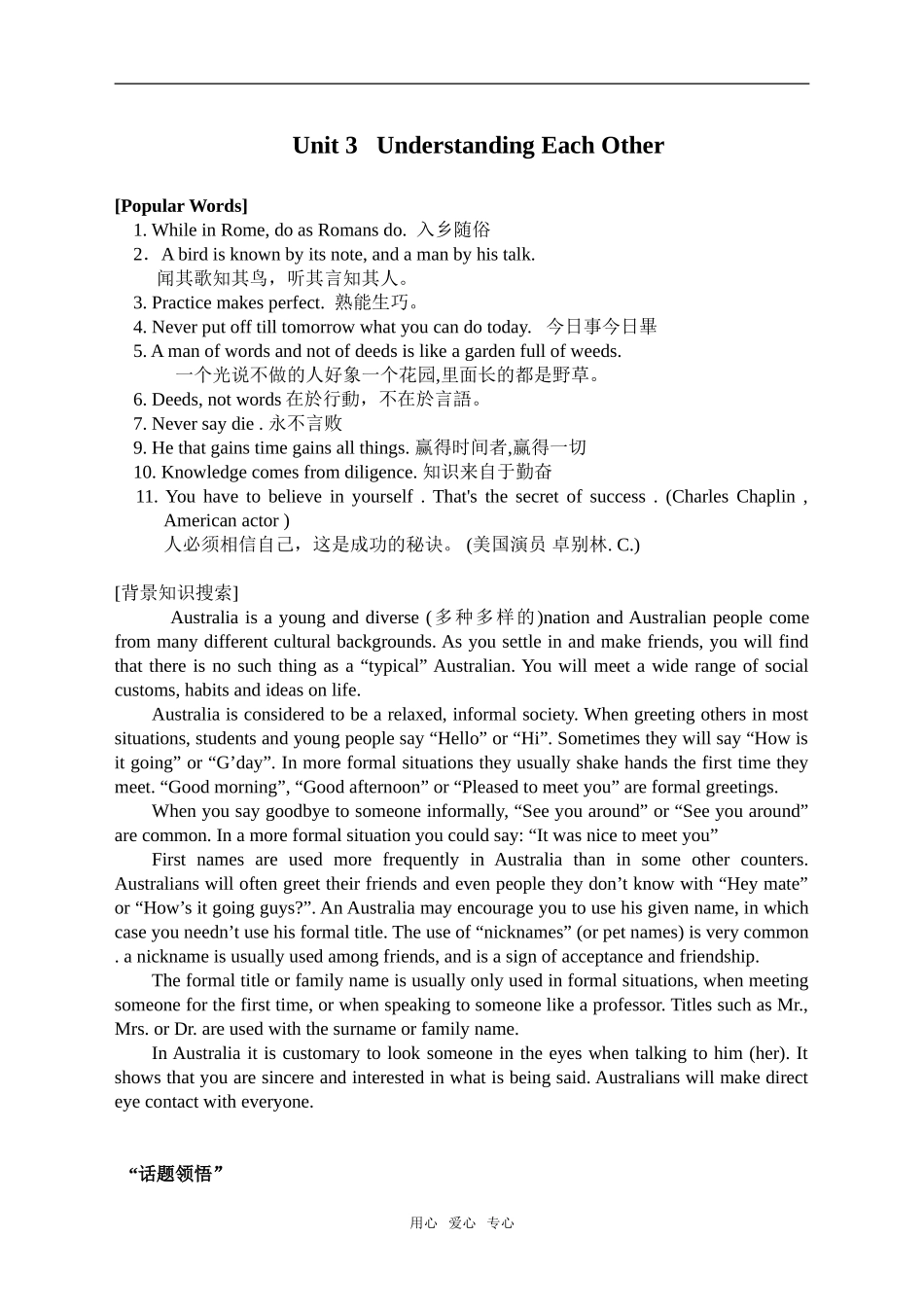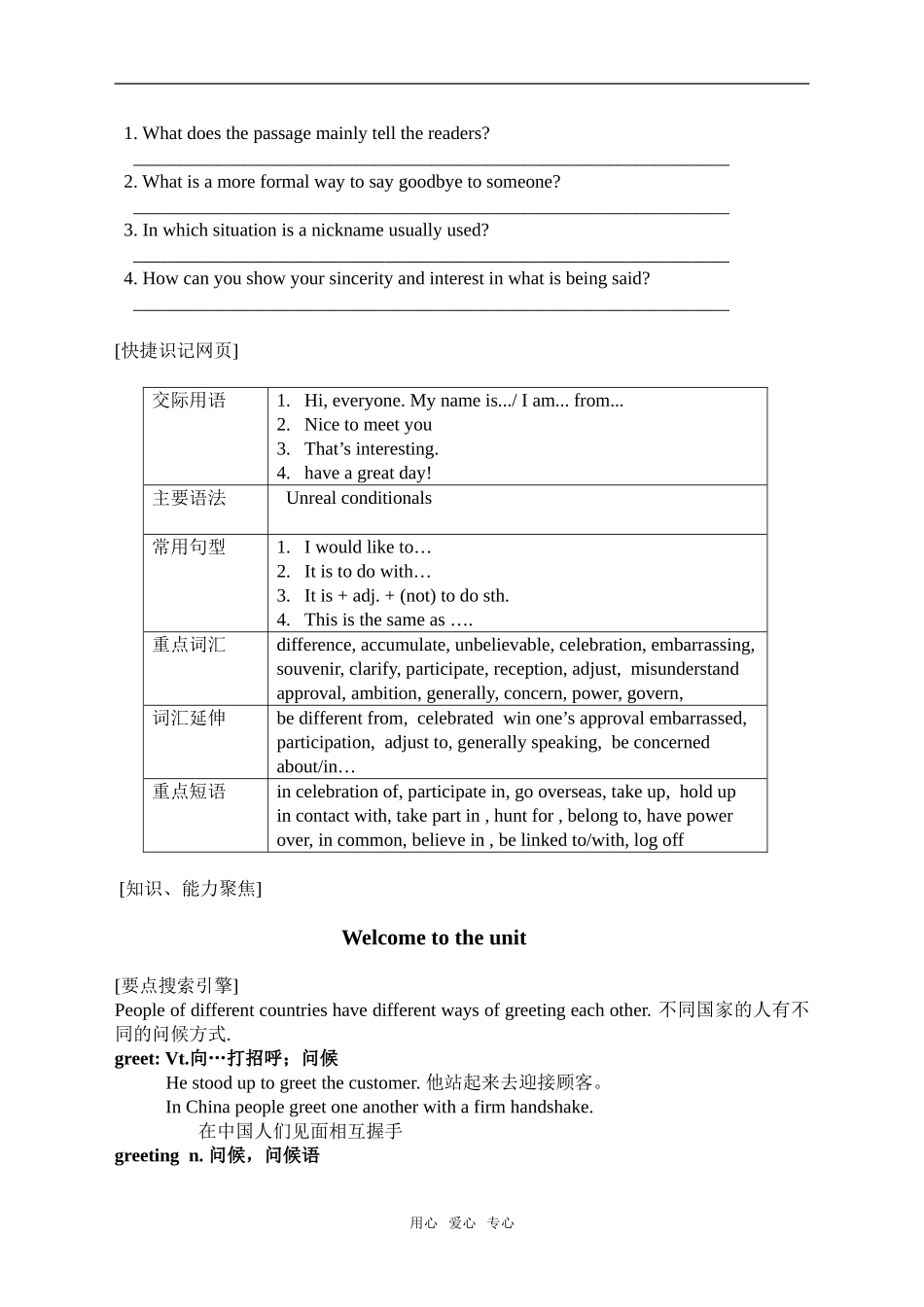Unit 3 Understanding Each Other[Popular Words]1. While in Rome, do as Romans do. 入乡随俗2.A bird is known by its note, and a man by his talk. 闻其歌知其鸟,听其言知其人。3. Practice makes perfect. 熟能生巧。4. Never put off till tomorrow what you can do today. 今日事今日畢5. A man of words and not of deeds is like a garden full of weeds. 一个光说不做的人好象一个花园,里面长的都是野草。6. Deeds, not words 在於行動,不在於言語。7. Never say die . 永不言败9. He that gains time gains all things. 赢得时间者,赢得一切10. Knowledge comes from diligence. 知识来自于勤奋11. You have to believe in yourself . That's the secret of success . (Charles Chaplin , American actor )人必须相信自己,这是成功的秘诀。 (美国演员 卓别林. C.)[背景知识搜索] Australia is a young and diverse (多种多样的)nation and Australian people come from many different cultural backgrounds. As you settle in and make friends, you will find that there is no such thing as a “typical” Australian. You will meet a wide range of social customs, habits and ideas on life.Australia is considered to be a relaxed, informal society. When greeting others in most situations, students and young people say “Hello” or “Hi”. Sometimes they will say “How is it going” or “G’day”. In more formal situations they usually shake hands the first time they meet. “Good morning”, “Good afternoon” or “Pleased to meet you” are formal greetings.When you say goodbye to someone informally, “See you around” or “See you around” are common. In a more formal situation you could say: “It was nice to meet you”First names are used more frequently in Australia than in some other counters. Australians will often greet their friends and even people they don’t know with...


